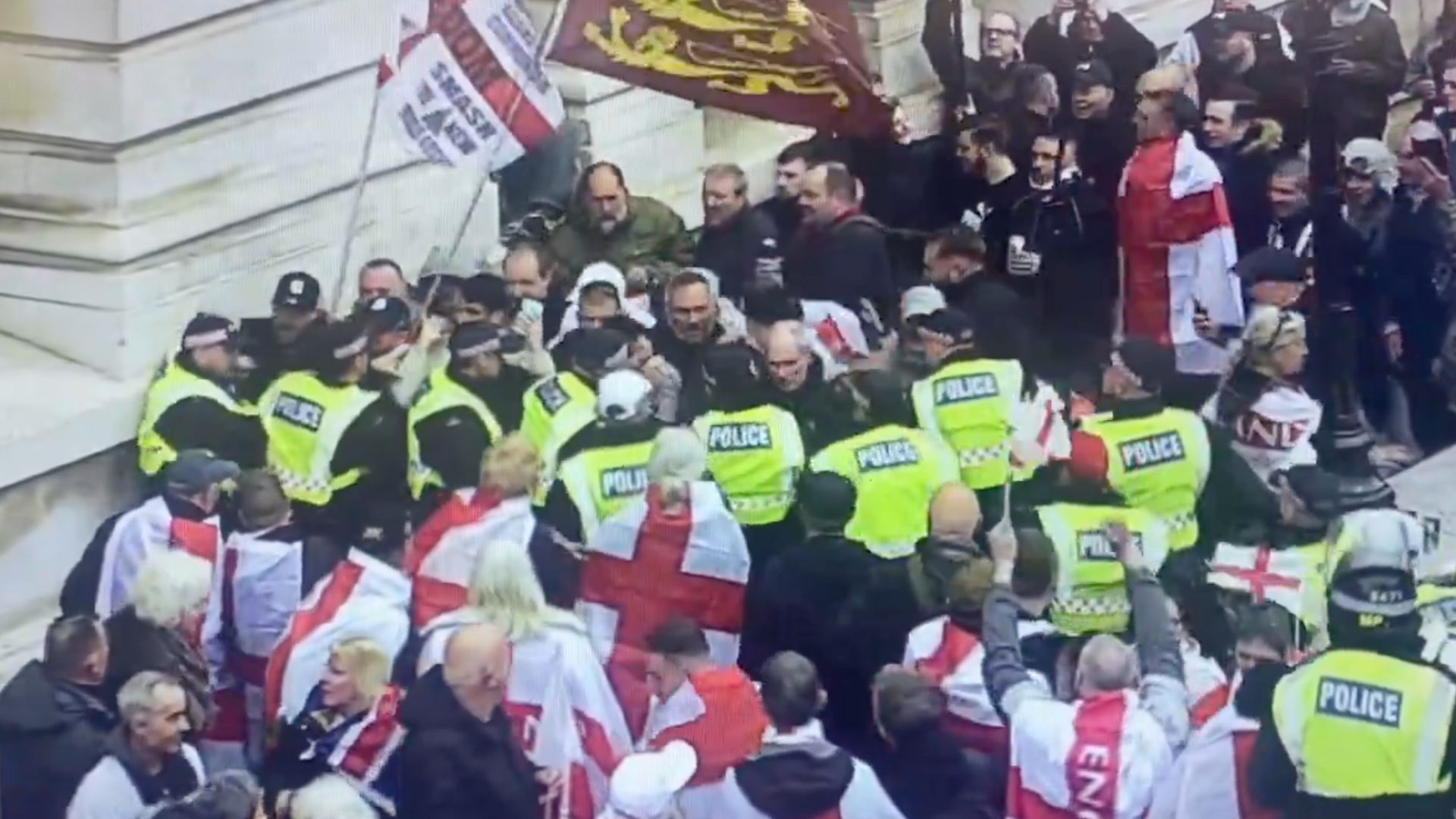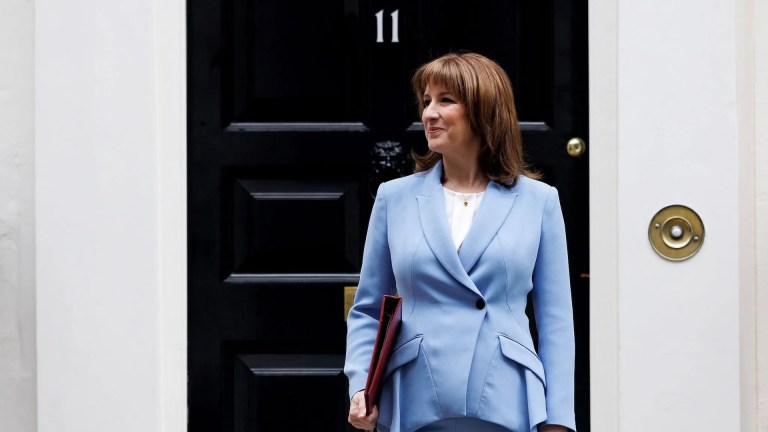The results undermine the constant culture war discourse around St George’s Day, said Luke Tryl, UK director of More in Common.
“[English people] think it should be possible for us to both remember the past while looking forward,” he said.
What do people think Englishness is?
The St George’s Cross is not, of course, an apolitical symbol. The flag has been used by the extreme fringe, adorning the paraphernalia of the English Defence League and the British National Party. The Muslim Council of Britain has previously lamented the flag’s use as a “symbol of triumphalism and division”.
“All too often Englishness is hijacked by the right,” explains Green Party MP Caroline Lucas, adding that the left can be “squeamish” about the concept of “Englishness”.
But despite its co-option by a racist fringe, the More in Common polling suggests that most English people do not have a hyper-politicised, exclusive vision of their national identity.
Instead most English people associate England with relatively benign practises like “queueing” and “going to the pub”, along with key national institutions.
Advertising helps fund Big Issue’s mission to end poverty
“Perhaps predictably, people have much common ground on what they think about Englishness – most likely to associate their country with the monarchy, drinking tea and the weather – and the NHS, police and parliament as the institutions vital to England’s stability,” Tryl said.
Admittedly, celebrations of England’s patron saint are typically muted compared to the revelry that accompanies St Patrick’s and St Andrew’s Day.
But this is partly because other nation’s saint days are defined in opposition to England, Robert Ford, a lecturer in politics at the University of Manchester, told the Huffington Post.
“St Andrew’s and St Patrick’s Day celebrations reflect the assertion of an identity distinct from the dominant English identity,” he said. “It is not clear whom the English define themselves against, or in comparison to.”
Polling released Monday (22 April) shows that few English people identify strongly with the flag of St George, but few are strongly opposed to it.
Asked which flag ‘best represents them,’ just 10% of English respondents answered the cross of St George – compared to around half of Scottish and Welsh people who were asked the same about their national flags. But most English people were relatively indifferent to the St George’s Cross, with just 6% saying it should never be displayed.
Advertising helps fund Big Issue’s mission to end poverty
Likewise the majority (81%) of people also didn’t feel uncomfortable when walking through a neighbourhood with lots of English flags displayed, the More in Common polling shows.
“Nor are there the stark partisan divides we are often led to believe, most Labour voters don’t feel any discomfort walking through neighbourhoods decked with English flags, and most Tory voters wouldn’t describe the English establishment as ‘woke’,” Tryl said.
It seems, then, that columnists like Nadine Dorries may be overstating the problem. But if they’re still angry about the lack of St George’s Day celebrations, perhaps they should look inward.
Way back in 2013, the British Future think tank published a report saying civic leaders had a responsibility to “counter rejectionist or exclusive versions of national identity” in order to foster an inclusive nationalism.
“The EDL with their street yobbery … share the blame with the politicians who haven’t spoken up for a modern English patriotism, as well as our British identity.
“While the devolution debates in Scotland and Wales appear to have modernised the Scots and Welsh associations with their flag, attitudes to the English flag are lagging behind.”
Advertising helps fund Big Issue’s mission to end poverty









